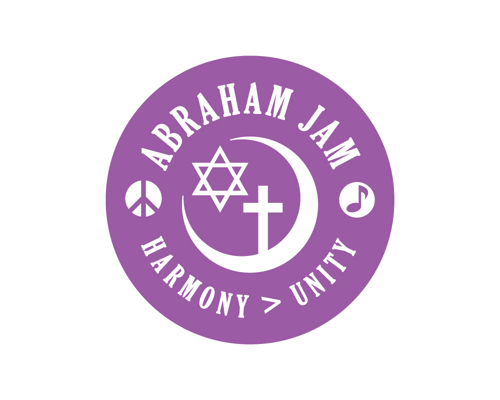Recent days have seen three well-publicized incidents of violent bigotry in the United States, and doubtless many more beyond our borders, and beyond our spheres of attention. People tried, and in some cases succeeded, to end the lives of people they did not know because they believed they were their enemies.
They had been told that people who are Jewish are a threat to them and should be killed, or people who are black are a threat to them and should be killed, or people who criticize the current president should be killed. These three white men believed the sick and inaccurate stories they were told, made plans to hurt other people because of those stories, and then carried out their plans. Thirteen people are dead, several more wounded, and multiple communities are deeply scarred because of this.
We, the members of Abraham Jam, an interfaith musical group consisting of a Jew, a Muslim, and a Christian, have dedicated ourselves to telling, singing, and living out a better story. We are heartbroken by these events, and we re-dedicate ourselves to restoring each other’s humanity, rather than dehumanizing any group of people.
We are reminded that words matter, whether spoken, written, or sung. Our best and worst plans and intentions are shaped by the stories we hear, and the telling of stories that demonize entire groups of people is irresponsible and counter-productive. The fueling of hatred through the stoking of fear leads us in the wrong direction. All of us must take responsibility for our words, which are one form of deeds. These acts of violence did not happen in a vacuum, but in a context of mainstreamed bigotry.
Abraham Jam believes that relationships across dividing lines are fundamental to the work of building healthy, functional, and peaceful communities. We don’t have to be the same. We don’t have to agree. But if we can truly know each other, we become individuals, rather than imagined groups of people, and while that doesn’t solve all conflict, it goes a long way toward re-humanization, and therefore resists the dehumanization necessary for violent bigotry to exist. Harmony is even better than unity. We don’t have to sing the same note to create something beautiful.
At a time when difference is often considered suspect, and often feared, we note that people of color, immigrants, and religious minorities are commonly being blamed for the problems of our nation, and especially for violent crime. This is simply not accurate, and that kind of narrative ploughs the earth for violence and bigotry to grow. The first step in dealing with a big problem is telling a true story about that problem.
Because of our faiths, and because of the lessons our lives have taught us, we stand for love. The word ‘love’ is often used lightly, but when we use it, we do not mean simply being nice, being polite, and calming the waters. That is not peace, it is merely placidity. Rather, the work of love involves being kind, empathic, strong, vulnerable, compassionate, and courageous enough to reach across lines that attempt to separate us.
The work of human relationships is messy, and we don’t claim to always get it right, but we are committed to showing up, and then showing up again, looking for the light of the Spirit in every human being, and honoring it in how we treat each other. We invite you to do the same, not because it is the easy road, but because it is the only way forward. As Rev. Dr. Martin Luther King, Jr., said, “We must learn to live together as brothers [and sisters], or we will perish together as fools.”
As Rabbi Abraham Joshua Heschel so profoundly wrote, “in a free society, some are guilty, but all are responsible.” We all have work to do to create the kind of society where this kind of violence is not commonplace. If we want to interrupt the work of people who believe in tearing down, we must do the hard work of building. If we want to challenge the work of people who hate, we must do the hard work of love.
As we share these words, we are together in Toronto, preparing to offer a concert at the Parliament of World Religions, where 7000+ folks from 220 of the world’s religions have gathered to celebrate and work for mutual respect and pluralism. Tonight we will celebrate Shabbat at Toronto’s oldest synagogue. As we worship, several temples in Toronto will be surrounded by Muslim friends, standing in support of their neighbors, just as Toronto’s Jews gathered around mosques last year following a violent attack against Muslims in Quebec. We not only dream of a world where this kind of mutual support is so common as to be unremarkable, but we pledge ourselves to work for such a world.
Billy Jonas, Dawud Wharnsby, and David LaMotte — Abraham Jam
